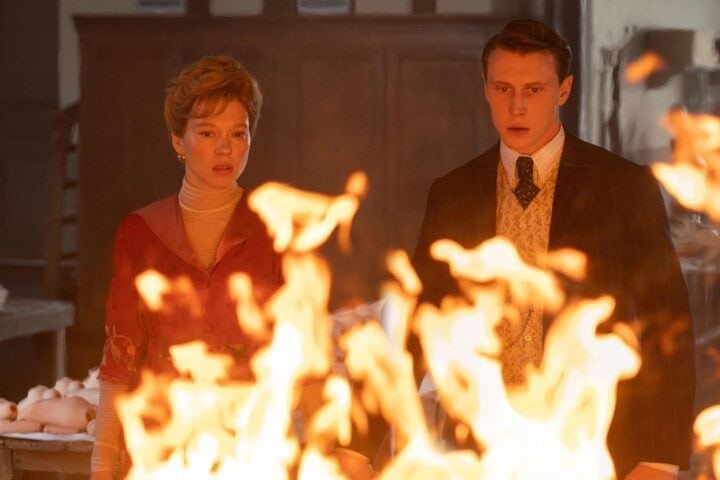Relatively early in Dev Patel’s shaggy revenge flick Monkey Man, Bobby (Patel) finds himself with a wad of cash in a back alley shack looking for a gun. His grimy arms dealer, unveiling his wares, immediately asks him if he likes John Wick, and offers him a Chinese replica of a gun that Keanu Keeves’s Wick used in one of the films, to which Bobby asks if he has something smaller so that he can be a little closer to his target.
That’s an almost innocuous scene in the grand scheme of Patel’s feature directorial debut, but it’s the perfect encapsulation of the film’s ethos. Where the John Wick films are globe-trotting orgies of brutal, blood-soaked revenge, Monkey Man, as written by Patel, Paul Angunawela, and John Collee, is far more intimate, literally and figuratively. Eschewing sweeping, panoramic wide shots, almost as if it were allergic to them, the film is a tableau of faces and moods more than a series of bloody Brazilian jiu jitsu-flavored money shots. There’s a good dose of those as well, but Patel is a rather patient director with some points to make amid all the brutality.
The film’s framing device juxtaposes Bobby’s mother (Adithi Kalkunte) telling the story of the Hindu monkey-god Hanuman with Bobby’s own hubris some years later in trying to avenge her death at the hands of a squad of corrupt police. That, though, isn’t entirely clear in the early going, with the film playing out in disorienting little vignettes showing Bobby hustling his way closer to his target. He takes a dive in underground fights to earn the money for his gun. He has folks from his poor neighborhood in Mumbai rob a club owner’s (Ashwini Kalsekar) purse so that he can return it to her and bargain for a job at her club. And once he’s in as a dishwasher and a waiter, he trains a dog in the club’s alley to bring him items so he can sneak in a gun.
Much of the film’s first third is place-setting, which is less a complaint than a recommendation that you manage your expectations. Monkey Man is in no rush to get where it’s going and Patel puts a lot of trust in his audience to stick with him to see where it arrives. The overarching picture does get much clearer, especially once the heroes and villains have names and faces, and the script’s critique of India’s current sociopolitical landscape takes center stage. In particular, it’s a heartening surprise to not just see a film like this stand so unequivocally with India’s queer communities—rather than the glad-handing, hyper-conservative powers that be—but also hand them Monkey Man’s most absurdly badass action beat in the process.
Even if somehow all of that flies over the audience’s head, though, Patel’s film functions just fine as a gritty, hard-hitting actioner in the key of John Wick, with Bobby’s initial plans going poorly and forcing him to re-evaluate them. Monkey Man’s psychedelic linchpin sequence makes an impassioned case for the violence of a story like this to be imbued with great purpose, and even as Patel’s direction glides dreamily over the fine details, that purpose is more than enough to give the film a timbre and tone unlike the vast majority of its contemporaries.
Since 2001, we've brought you uncompromising, candid takes on the world of film, music, television, video games, theater, and more. Independently owned and operated publications like Slant have been hit hard in recent years, but we’re committed to keeping our content free and accessible—meaning no paywalls or fees.
If you like what we do, please consider subscribing to our Patreon or making a donation.




“Ram asked Hanuman, his servant, ‘Why do you serve me?’
Hanuman replied, ‘When I forget who I am I serve you. When I remember who I am, I know that you and I are one.'”